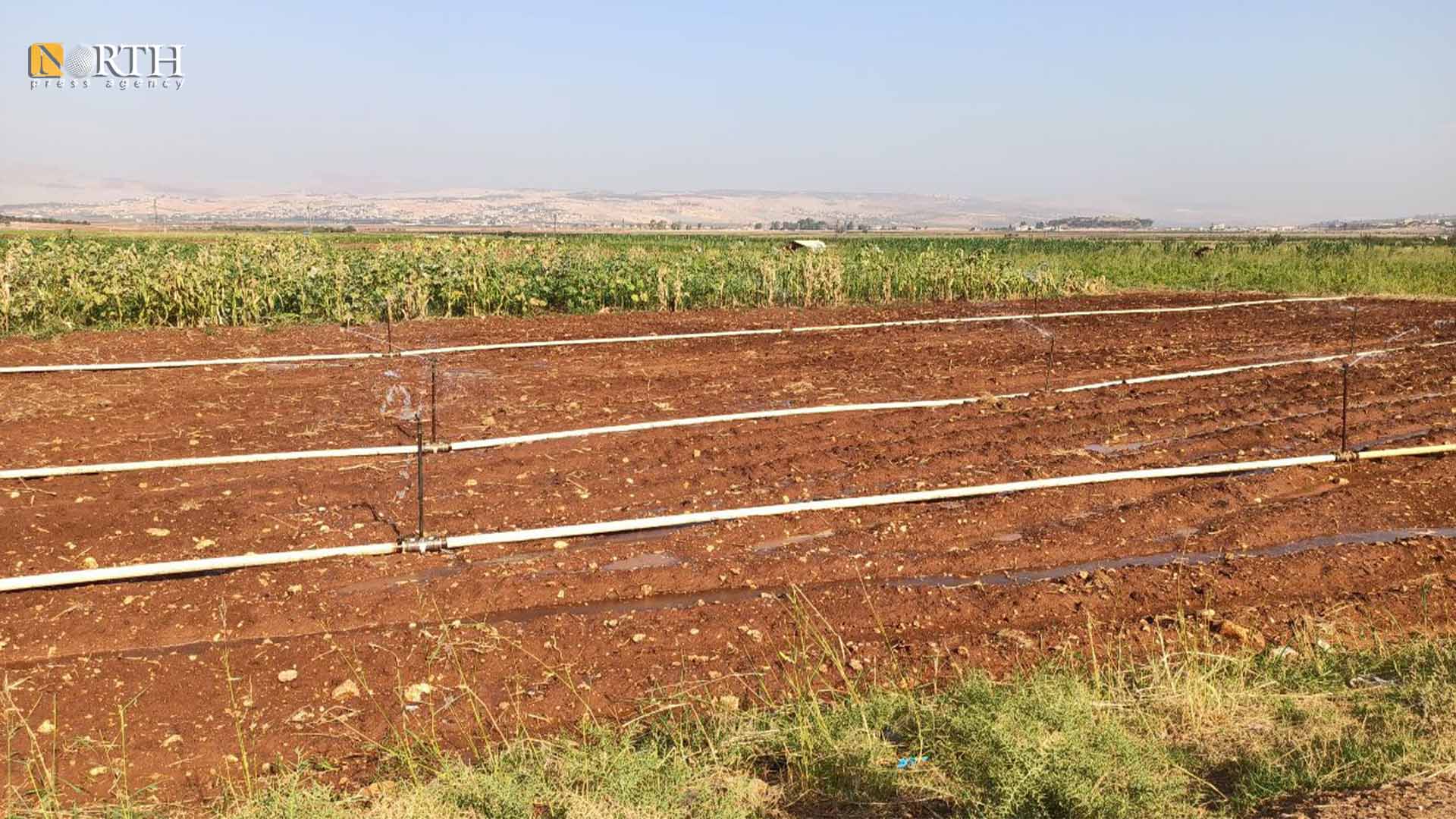IDLIB, Syria (North Press) – Mahmoud al-Aleiwi, a farmer in the Rouj Plain region, west of Idlib, northwestern Syria, plows his land to plant the nigella sativa crop, which is grown in the winter.
But the farmer was shocked by the prices of agricultural supplies, which are witnessing a significant rise with the collapse of the value of the Turkish lira against the US dollar, since Turkish-backed opposition-held areas use Turkish lira (TRY).
Most farmers are unable to secure the costs of their cultivations, especially as they were exposed to losses last year due to fungal diseases that affected their crops.
Residents, farmers and day laborers in the city of Idlib agree that the circulation of the Turkish currency and the collapse of its value worsened their situation, due to the increase in the prices of all materials exponentially.
The exchange rate of the Turkish lira against the US dollar has reached 10 liras, while it recorded 353 liras against the Syrian pound, according to the Lira Today website.
The Turkish Central Bank’s decision to cut the main interest rate, in addition to diplomatic crises with Western countries are the main reasons of the Turkish Lira collapse.
Since June of 2020, the Syrian Interim Government and the Salvation Government had issued the circulation of the Turkish currency instead of the Syrian pound, which at that time witnessed a major collapse, reaching about 5000 SYP per one US dollar.
Agriculture is the only source of income for most of the residents of Rouj Plain region in the southern countryside of Idlib.
High prices
Farmers in the region say, the prices of cultivation’s supplies this year are very high compared to previous years, as plowing a dunum costs between 70 and 80 TRY (28,000 SYP), and the costs of seeding a dunum are about 60 TRY.
The price of a bag of fertilizer (50 kg) exceeds $30, and the price of a barrel of diesel (220 liter) has reached $180, while one ton of wheat seed is sold at $400.
Watad Company issued a decision earlier, to increase the price of imported diesel and gasoline, as it raised the price of a liter of gasoline to 8.46 TRY (2,900 SYP), the price of a liter of imported diesel to 8.5 TRY (2,800 SYP), and raised the price of a liter of second imported diesel to 6.21 TRY (2,200 SYP).
Watad Company was founded in Idlib in early 2018 by a group of Syrian businessmen living in Turkey. Later, it has become a key player in Idlib as it controls and trades the local fuel and gas market, from oil refining to setting prices.
The rise in agricultural requirements forced the majority of farmers in the region to take out loans to grow their lands, especially as they suffered losses during the last season due to fungal diseases that affected their crops and destroyed large areas of them, in light of the farmers’ inability to combat them due to the high prices of their medicines.
Al-Aleiwi, who owns 20 dunums, borrowed $1,500 this year to plow the land and buy seeds and fertilizers.
Reducing the cultivated areas
The high prices of rented agricultural land, and the high prices of wheat, barley and lentil seeds, in addition to last year’s losses, prompted Ma’mon al-Hamid, a farmer in the town of Sijer in the Rouj Plain, to reduce his cultivated area.
Despite the small area, the farmer borrowed money from one of his relatives to rent it, as the rental price of one dunum is about $75.
“If a farmer is successful, he can only collect his capital these years, but we cannot leave our only profession even if we are sometimes sure of losing.”

